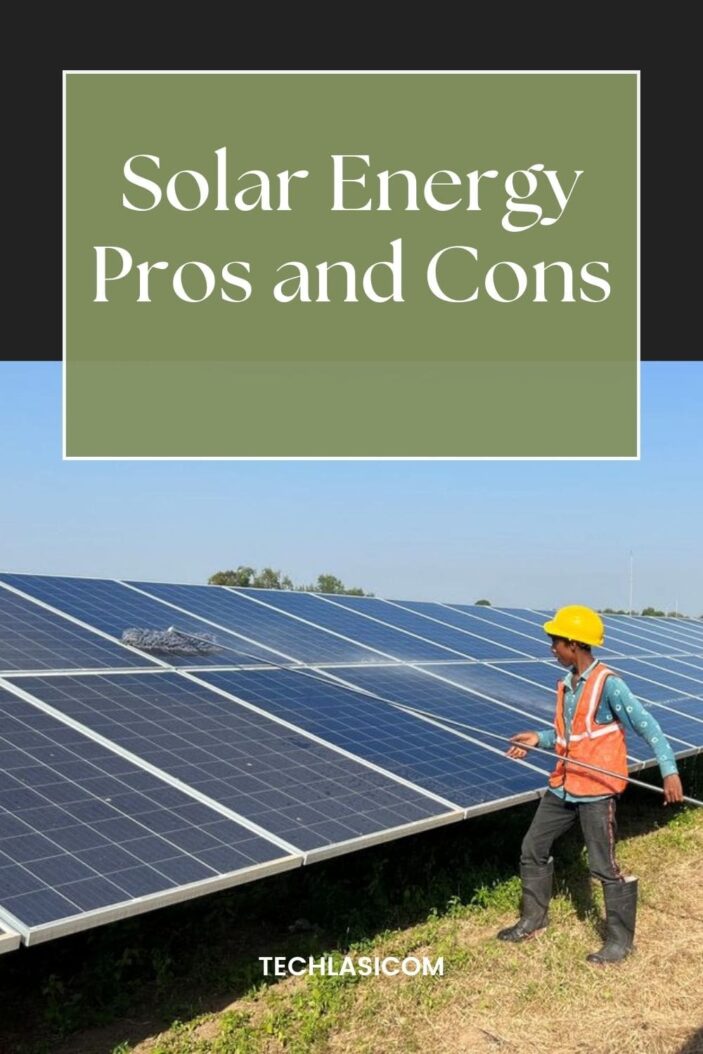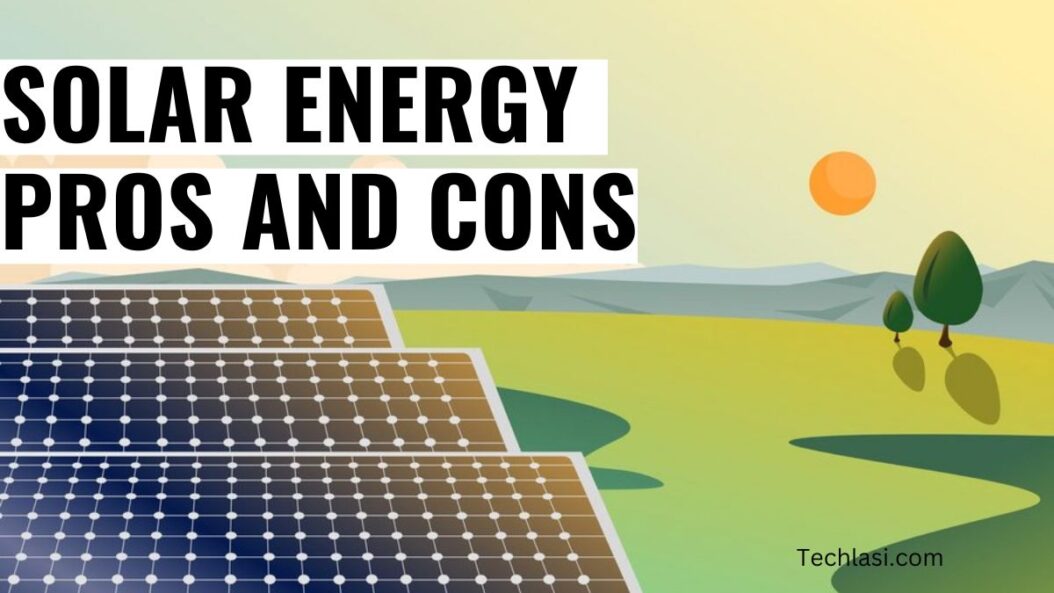Introduction to Solar Energy
Solar energy is the radiant light and heat from the Sun that is harnessed using a range of ever evolving technologies such as solar heating, solar photovoltaics, solar thermal energy, solar architecture, molten salt power plants, and artificial photosynthesis. As a renewable energy source, solar power provides an alternative to fossil fuels and nuclear power. But is it right for you? Here we look at some of the key pros and cons of solar energy.

The Pros of Solar Energy
Renewable and Abundant Resource
The Sun delivers an almost unfathomable amount of energy to the Earth each day. The amount of solar energy that hits the Earth in one hour is equal to the amount of energy used across the entire planet over the course of a year. As technology improves, solar will play an increasingly greater role in the global energy mix. As a renewable, it can supplement and decrease our reliance on finite fossil fuel reserves that take millions of years to form.
Reduces Electric Bills
For utility customers who install rooftop solar PV systems, the extra solar electricity they generate can wipe out some or potentially all of their home electric bills. Any surplus solar can even be sold back to the grid through net metering programs.
Low Maintenance
Unlike other renewable energy technologies, solar PV systems require little to no maintenance over their 25-30 year lifespan. Most solar manufacturers provide 20-25 year power output warranties. Aside from occasionally washing dust off panels and conducting visual inspections, homeowners can sit back and soak up the free sunlight.
Government Rebates and Tax Credits
Governments and utility providers offer generous rebates, tax credits, and other incentives to spur the adoption of solar PV systems around the world. Check available incentives in your region to help offset the upfront installation costs.
Adds Property Value
Solar panels are attractive home upgrades that can increase property value similar to a kitchen or bathroom remodel. For environmentally conscious home buyers, having an existing solar system could be a deciding factor over another comparable house without solar.
Low Operating Costs
Unlike fossil fuel plants, solar power systems have minimal operating and maintenance costs after installation. Fuel inputs like coal, oil, and natural gas are eliminated.
Peak Energy Generation Aligns with Peak Demand
Solar panels generate the most electricity during the midday and afternoon hours when the sun is at its peak. This peak generation aligns nicely with heightened consumer and commercial energy usage during the day.
Reduce Carbon Emissions
As nations push towards renewable energy targets to halt climate change, solar PV delivers deep cuts to carbon emissions from electricity generation. Solar emits no greenhouse gases, sulfur dioxide, particulates, or any other pollutants during operation.
The Cons of Solar Energy
Higher Upfront Costs
Installing a residential solar system ranges from $10,000 to $25,000 or more depending on the size, electric costs in your area, and available incentives. Not everyone can manage the higher upfront investment over alternative energy options.
Intermittent Power Source
The obvious downside of solar panels is they require sunlight to produce electricity. Solar output varies throughout the day and between seasons. Batteries can store surplus solar, but add considerably to costs. When the sun isn’t shining, supplemental power from the grid is needed.
Uses a Lot of Space
Fossil fuel plants and nuclear facilities can tuck away machinery on compact sites. Solar PV systems need sprawling land and rooftop space since panels spread horizontally. The space requirement limits applications in crowded urban locations.
Contains Some Toxic Materials
While vastly safer and eco friendlier than coal, solar panels contain small amounts of toxic materials like cadmium and lead that require proper handling and recycling at end-of-life. Improper disposal risks these metals leaching into soils.
Variability Impacts the Grid
As solar power displaces fossil fuels, new challenges emerge for managing the electrical grid over the course of a day. Ramping other generators up or down to offset the variability of solar is an inherent challenge.
Payback Period Varies
Determining actual solar payback and investment returns is tricky. While panels might last 25+ years and offer free electricity from the sun, the payback math depends heavily on local installation costs, electricity rates, panel efficiency, government incentives, and financing options. Under good conditions, payback lands in the 5-7 year range.
Can’t Completely Replace Fossil Fuels, Yet
Even with solar expanding at rapid annual growth rates, it still only accounted for just over 3% of electricity generation globally in 2020. Until scalable energy storage is deployed or other complementary technologies mature, the intermittency of solar will require fossil fueled plants to handle overnight power generation.
Not Universally Compatible Building Types
Installing solar PV systems in high rise apartments, condos, and office spaces is more complex and costly than single family homes with rooftop access. Retrofitting solar on historical buildings also runs into permitting issues that slow adoption. Certain building infrastructure, roof types, and locations increase complexity.
Longer Payback vs. Utility Scale
The economies of scale make large solar farms considerably more cost competitive than rooftop residential systems. Smaller scale distributed solar must pay for components like inverters for each installation vs. at the utility level. Net metering policies also disadvantage home solar paybacks in some markets.
Conclusion
When weighing solar energy pros and cons, solar PV emerges as a leading renewable technology with ample room still to address current shortcomings. As costs continue decreasing and solar efficiency improves, solar energy will displace fossil fuels across an expanding range of applications from residential to utility scale and play a major role in combating climate change. Ambitious decarbonization targets globally ensure solar will be one of the fastest growing industries over the next several decades. If you are on the fence about installing solar panels for your home, make sure to thoroughly assess costs and payback timelines specific to incentives available in your region.
Frequently Asked Questions
How much do solar panels cost to install?
The average cost to install solar panels ranges from $10,000 – $25,000 depending on system size, electric rates in your utility territory, technical specifics, and federal or local incentives that help offset the installation costs.
How long do solar panels last?
Modern solar panels have lifespans exceeding 25 years. Most solar panel manufacturers offer 20-25 year power output warranties guaranteeing at least 80% of rated power generation after two decades. With minimal maintenance, panels often outlast the original warranties.
Can solar panels work on cloudy or rainy days?
Yes, but with reduced efficiency as light intensity decreases. Solar panels can still generate 10-25% of optimal output on overcast days. Peak solar production aligns with sunny weather, but partial generation helps offset electricity drawn from the grid even on inclement days.
What maintenance do solar panels require?
Solar PV systems require very little ongoing maintenance over their lifespan. Occasionally washing off dust buildup on panel surfaces and conducting visual equipment inspections constitutes standard upkeep. Most maintenance involves inverter troubleshooting if issues arise.
Do solar panels increase home value?
Multiple studies confirm homes with existing solar PV systems garner higher appraisal values and sell more quickly than comparable properties. Similar to a kitchen or bathroom remodel, solar panels significantly enhance resale appeal, especially for eco conscious home buyers interested in energy bill savings.
- What is One Challenge in Ensuring Fairness in Generative AI: The Hidden Bias Problem - August 15, 2025
- How Small Language Models Are the Future of Agentic AI - August 15, 2025
- What Are the Four Core Characteristics of an AI Agent? - August 15, 2025

